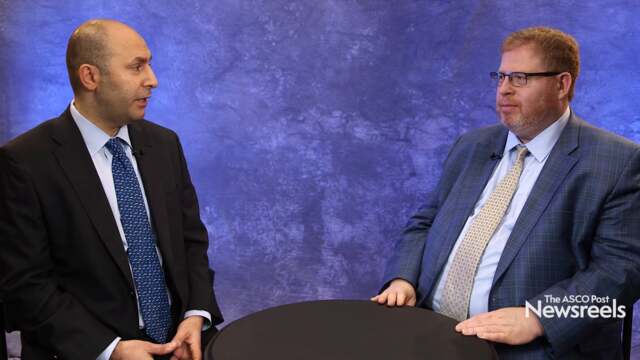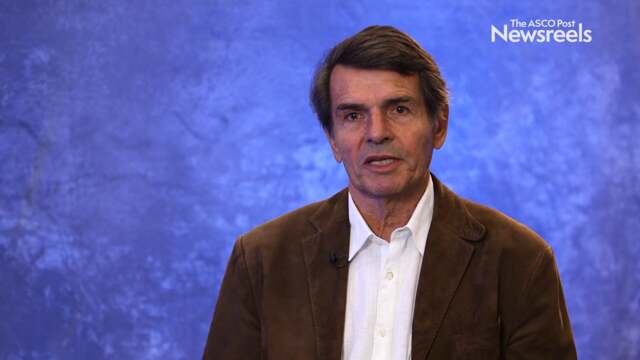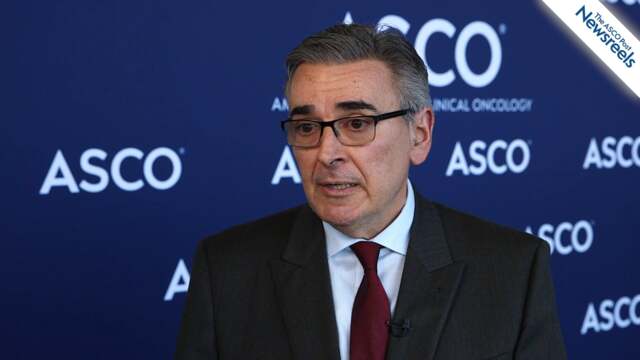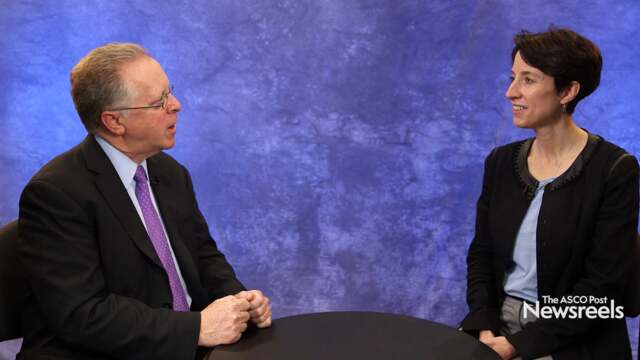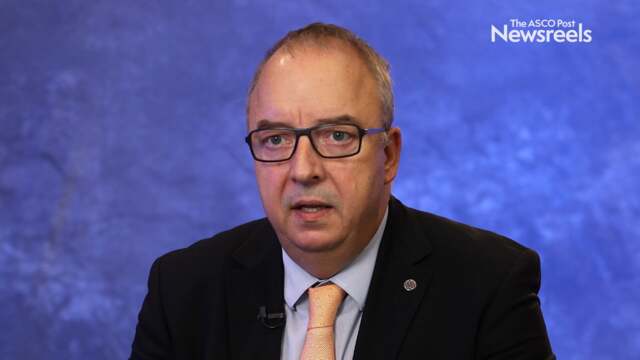Courtney Denton Dinardo, MD, on AML: Treatment Study Results
2018 ASCO Annual Meeting
Courtney Denton Dinardo, MD, of The University of Texas MD Anderson Cancer Center, discusses findings on the durable response with venetoclax in combination with decitabine or azacitidine in elderly patients with acute myeloid leukemia (Abstract 7010).
Toni K. Choueiri, MD, of Dana-Farber Cancer Institute, and Jonathan E. Rosenberg, MD, of Memorial Sloan Kettering Cancer Center, discuss their perspectives on the top abstracts in bladder cancer presented at the 2018 ASCO Annual Meeting (Abstracts 4507, 4506, 4503, 4504).
Bernard J. Escudier, MD, on RCC: Results From the IMmotion151 Trial
Bernard J. Escudier, MD, of Gustave Roussy, discusses patient-reported outcomes for atezolizumab plus bevacizumab vs sunitinib in treatment-naive metastatic renal cell carcinoma (Abstract 4511).
Joseph A. Sparano, MD, of Montefiore Medical Center, discusses phase III study results on chemoendocrine treatment vs endocrine treatment alone in hormone receptor–positive, HER2-negative, node-negative breast cancer and an intermediate prognosis 21-gene recurrence score (Abstract LBA1).
Andrew D. Seidman, MD, of Memorial Sloan Kettering Cancer Center, and Meredith M. Regan, ScD, of Dana-Farber Cancer Institute, discuss study findings on absolute improvements in freedom from distant recurrence with adjuvant endocrine therapies for premenopausal women with hormone receptor–positive, HER2-negative breast cancer (Abstract 503).
Michael Gnant, MD, of the Medical University of Vienna, discusses study findings on adjuvant denosumab in early breast cancer––a disease-free survival analysis of postmenopausal patients.
